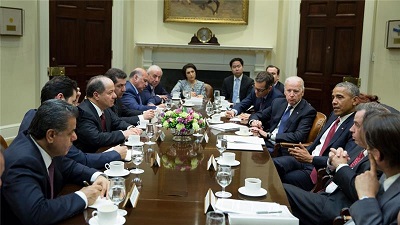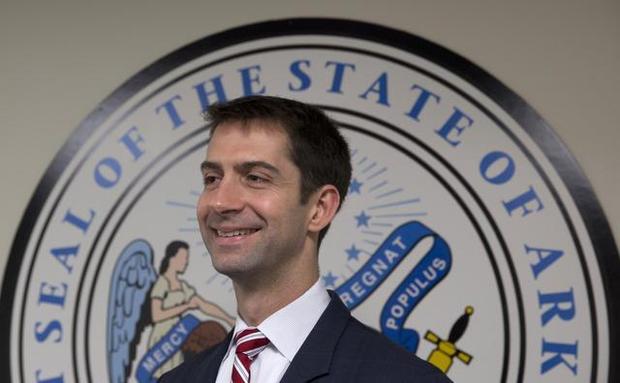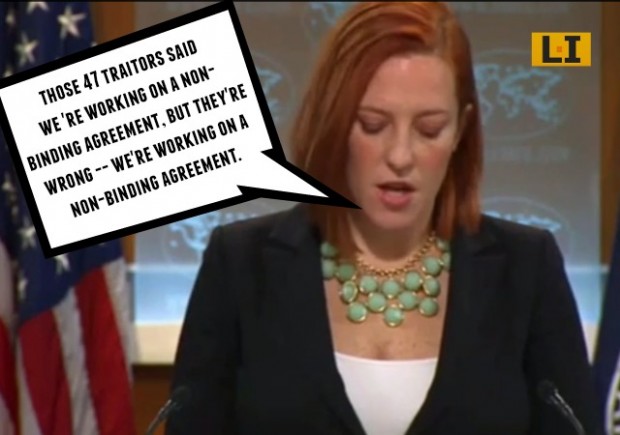Why the Democratic Rust Belt in Northeastern Pennsylvania voted for Trump
The Weekend edition of The Wall Street Journal (WSJ), November 12-13, 2016 presented the latest in a series of articles on The Great Unraveling. Formerly Democratic rust belt counties, devastated by economic and social decline that swung the electoral victory for President-elect Donald Trump, “The Places that Made Trump President.” The WSJ characterized these areas as:
Rust Belt counties facing declines in manufacturing, shrinking populations, rising immigration and fraying social fabric moved heavily toward the Republican candidate and his message of national restoration
This latest in the WSJ series dealt with counties in the devastated hard coal and industrial areas of Northeastern Pennsylvania from Scranton south from the New York Line on I-81 across the Delaware River along the spine of the Poconos. We knew the area well from stops on our journey south to Florida in Wilkes Barre, Hazelton and Saylorville, where former all of Islamist Turkish President Erdogan, Sheikh Fetulleh Gulen is ‘holed up’ in his compound.
We asked two cousins, former residents of the area, American ex-pat in Paris, France, noted European commentator and author Nidra Poller and lawyer activist, Debra Glazer in Irvine, California for their recollections of growing up in these Northeastern Pennsylvania rustbelt communities.
Nidra Poller
I had the privilege of experiencing the Great Depression! Though I was born in 1935, the Depression had never ended in Jessup, PA. They distributed very small apples to the schoolchildren (and I always prefer very small apples) and caned grapefruit. Those who came from affluent families brought their own sugar to sweeten the grapefruit.
We had so few material possessions… young people today couldn’t even imagine how we lived. And we had a store! I suppose we belonged to the middle class.
Our mother z”l (if blessed memory) made my clothes…turning my father’s worn out suits into itchy tweed and his shirts into blouses.
We’ll see what the dispossessed voters of 2016 think in 2019. Can a president, Trump or otherwise, undo the consequences of the entire postwar economic and social development of the US?
Debra Glazer
All through the 1970s and even into the 1980s, I would do much of my clothing; shoe and purse shopping at the various outlets in town (remember Leslie Fay, London Fog, Suburban Casuals, Old Mill, David Crystal Izod, and Rex Shoes?). My mother and I (and my cousins) spent hours going from place to place, stretching from Dickson City, Scranton, and down to Wilkes-Barre. These were real no-frills outlets, often times situated within the factory walls, with merchandise that had mostly tiny imperfections or that were a season old. All those sewing and piece goods jobs disappeared to China and elsewhere.
Then Scranton launched into the telemarketing craze. Many of those annoying dinner-time calls originated from workers sitting in the old, converted Globe, Scranton Dry Goods, or Samters downtown department stores, until the FCC intervened (thankfully) with the do-not-call lists.
When I was a young girl, Scranton had over 100,000 populations, with a strong and large Jewish community, a spanking JCC and many thriving synagogues. Today, it’s mostly the Orthodox Jewish community that is holding its own, while the other Jewish denominations in town suffer from an aging membership. Almost all of my Jewish high school friends are no longer in Scranton, as there was little for those of us without family businesses to come back to after college. The overall population dwindled, the poorly educated or blue-collar workers stayed behind, city services crumbled, bankruptcy loomed from time to time, and corruption reigned in NE PA. Although Scranton boasts several decent universities (the Jesuit University of Scranton and the Catholic Marywood College), those institutions expanded their campuses while causing the erosion of the property tax base. It was really sad for me to go back home when I would visit my aging parents. The Wilkes-Barre/Scranton Avoca Airport is a gorgeous building, built with loads of federal funds, but almost no airlines service there and if they do, flights are often canceled at the last minute. If one really needs to get somewhere, one is usually forced to drive to Newark, Philadelphia, NY, or even Allentown airports.
So yes, I can see that those folks I grew up with were the backbone of the Trump victory, maybe less so in Scranton because of the Hillary and Biden connections, but still much more than expected in this Democratic stronghold.
Here are selections from the latest WSJ article on what motivated the residents of the rust belt counties in Northeastern Pennsylvania to vote for President-elect Donald Trump in 2016:
WILKES-BARRE, Pa. — Tamika Shupp twice voted for Barack Obama as the candidate best equipped to shake up Washington. This year she chose Donald Trump for the same reason.
“Obama tried to do well, and it didn’t turn out how we thought,” said Ms. Shupp as she prepared Polish dumplings at Mom & Pop’s Pierogis in this Rust Belt city. Mr. Trump should do better, she figures, by cracking down on illegal immigration and upholding American values like hard work.
Mr. Trump “is going to be another Obama,” said the 43-year-old Ms. Shupp. She considers both men to be agents of change. As for the crude remarks Mr. Trump made during the campaign, especially concerning women, Ms. Shupp said she dismissed them as bragging and “shoptalk,” and she didn’t believe the women who accused him of sexual assault.
[…]
Foreign competition largely wiped out the area’s dress and shoe industries. Many in the county bitterly remember pencil maker Eberhard Faber moving a plant to Mexico in the mid-1980s and other manufacturers closing factories. A plan in the mid-2000s to capitalize on computer-network technology and turn the county into “Wall Street West” proved a bust after few financial firms moved back-office processing to the area. The Greater Wilkes-Barre Chamber of Commerce is hatching a new plan to attract businesses by involving the local colleges in recruitment efforts, but the program is too new to have much effect so far.
The unemployment rate in Luzerne County, now 6.2%, has generally exceeded the national average since 2000, and manufacturing employment in the county is down by around one-third since 2000. Many of the jobs that remain are low-wage service ones in local hospitals, colleges, chain restaurants and stores. Median income, after accounting for inflation, has been flat in Luzerne County since 2000.
Young people are leaving the region in search of jobs elsewhere, leaving an older, more conservative group of voters. In Luzerne, the population has remained steady since 2000, at about 320,000, but the number of people age 25 to 44 fell by about 10,000, according to Moody’sAnalytics.
The weak economy has, over the decades, contributed to a tattering of the county’s social fabric. Church attendance is down since 2000, opioid addiction is up, and civic organizations like the Rotary Club and the Masons have trouble recruiting young members, say local residents. Of the four Evangelical Lutheran churches in Wilkes-Barre in 2000, says Rev. Peter Kuritz of Good Shepherd Lutheran Church, one closed and two other don’t have full-time pastors.
Meanwhile, the county’s Hispanic population has climbed nearly 10-fold since 2000, to 31,000, adding a layer of ethnic tension to a place where 84% of the population is non-Hispanic white.
“There’s a sense that the new residents don’t look like us or sound like us,” says Rev. Kuritz. “People feel it’s not like it used to be.”
The region had been drifting from its New Deal Democratic roots for years, and Mr. Trump took full advantage with its working-class voters. They had long been sympathetic to conservative arguments on issues such as gun control and abortion, while skeptical of the GOP’s perceived catering to the wealthy. Mr. Trump’s brand of populism bridged that divide.
County GOP leaders say they looked to boost turnout by shifting two paid workers to Hazleton, a city that gained national prominence by passing an ordinance penalizing landlords for renting to illegal immigrants, which was later blocked by the courts. “Immigration is a big issue there,” says Luzerne County Chairman Ron Ferrance. “There are so many passionate people” who were ready to make phone calls and canvass for Mr. Trump, who takes a hard line on immigration, he says.
Bill O’Boyle, a veteran reporter and columnist for Wilkes-Barre’s Times Leader, says he figured Mr. Trump was a lock to win Luzerne County when he compared the turnout at political rallies. The area has long been a stopover for presidential campaigns.
“You had Hillary Clinton, 500 people. Teddy Cruz, 300 people. Bernie Sanders, 1,500 people. And then Donald Trump, 11,000. How could those crowds not mean something?”
Nineteen-year-old Jasmine Castillo, who makes tacos at the family’s food truck in Wilkes-Barre’s downtown, says her family’s life has become worse as Mr. Trump’s popularity soared. People now tell her to speak English when she speaks Spanish, and to go back across the border, though she is an American citizen. Someone left feces outside her father’s kitchen-cabinet business, she says.
“People feel empowered now” to make insults and threats against Hispanics, she says. “It’s terrifying.”
Martha Wallace, whose family owns a small manufacturer of crucifixes and other Catholic jewelry, says, “Trump drummed up the enthusiasm, just like Obama drummed up the enthusiasm last time.” Her 7-year-old son has declared himself “a Trump man.” Her 16-year-old daughter also supports Trump. “I’ve encouraged her to dream big,” Ms. Wallace says.
Ms. Wallace says she is worried about the future of the U.S. economy and the threat of terrorism, and is counting on a Trump presidency to ease her fears about both. “We hope some of Trump’s economic policy will make it easier for us compete and still stay true to always being a ‘Made in the USA’ company,” she says.
For Mr. Trump’s supporters, expectations are so high it reminds them of what they once felt for President Obama.
WILKES-BARRE, Pa. — Tamika Shupp twice voted for Barack Obama as the candidate best equipped to shake up Washington. This year she chose Donald Trump for the same reason.
“Obama tried to do well, and it didn’t turn out how we thought,” said Ms. Shupp as she prepared Polish dumplings at Mom & Pop’s Pierogis in this Rust Belt city. Mr. Trump should do better, she figures, by cracking down on illegal immigration and upholding American values like hard work.
Mr. Trump “is going to be another Obama,” said the 43-year-old Ms. Shupp. She considers both men to be agents of change. As for the crude remarks Mr. Trump made during the campaign, especially concerning women, Ms. Shupp said she dismissed them as bragging and “shoptalk,” and she didn’t believe the women who accused him of sexual assault.
[…]
Foreign competition largely wiped out the area’s dress and shoe industries. Many in the county bitterly remember pencil maker Eberhard Faber moving a plant to Mexico in the mid-1980s and other manufacturers closing factories. A plan in the mid-2000s to capitalize on computer-network technology and turn the county into “Wall Street West” proved a bust after few financial firms moved back-office processing to the area. The Greater Wilkes-Barre Chamber of Commerce is hatching a new plan to attract businesses by involving the local colleges in recruitment efforts, but the program is too new to have much effect so far.
The unemployment rate in Luzerne County, now 6.2%, has generally exceeded the national average since 2000, and manufacturing employment in the county is down by around one-third since 2000. Many of the jobs that remain are low-wage service ones in local hospitals, colleges, chain restaurants and stores. Median income, after accounting for inflation, has been flat in Luzerne County since 2000.
Young people are leaving the region in search of jobs elsewhere, leaving an older, more conservative group of voters. In Luzerne, the population has remained steady since 2000, at about 320,000, but the number of people age 25 to 44 fell by about 10,000, according to Moody’sAnalytics.
The weak economy has, over the decades, contributed to a tattering of the county’s social fabric. Church attendance is down since 2000, opioid addiction is up, and civic organizations like the Rotary Club and the Masons have trouble recruiting young members, say local residents. Of the four Evangelical Lutheran churches in Wilkes-Barre in 2000, says Rev. Peter Kuritz of Good Shepherd Lutheran Church, one closed and two other don’t have full-time pastors.
Meanwhile, the county’s Hispanic population has climbed nearly 10-fold since 2000, to 31,000, adding a layer of ethnic tension to a place where 84% of the population is non-Hispanic white.
“There’s a sense that the new residents don’t look like us or sound like us,” says Rev. Kuritz. “People feel it’s not like it used to be.”
The region had been drifting from its New Deal Democratic roots for years, and Mr. Trump took full advantage with its working-class voters. They had long been sympathetic to conservative arguments on issues such as gun control and abortion, while skeptical of the GOP’s perceived catering to the wealthy. Mr. Trump’s brand of populism bridged that divide.
County GOP leaders say they looked to boost turnout by shifting two paid workers to Hazleton, a city that gained national prominence by passing an ordinance penalizing landlords for renting to illegal immigrants, which was later blocked by the courts. “Immigration is a big issue there,” says Luzerne County Chairman Ron Ferrance. “There are so many passionate people” who were ready to make phone calls and canvass for Mr. Trump, who takes a hard line on immigration, he says.
Bill O’Boyle, a veteran reporter and columnist for Wilkes-Barre’s Times Leader, says he figured Mr. Trump was a lock to win Luzerne County when he compared the turnout at political rallies. The area has long been a stopover for presidential campaigns.
“You had Hillary Clinton, 500 people. Teddy Cruz, 300 people. Bernie Sanders, 1,500 people. And then Donald Trump, 11,000. How could those crowds not mean something?”
Nineteen-year-old Jasmine Castillo, who makes tacos at the family’s food truck in Wilkes-Barre’s downtown, says her family’s life has become worse as Mr. Trump’s popularity soared. People now tell her to speak English when she speaks Spanish, and to go back across the border, though she is an American citizen. Someone left feces outside her father’s kitchen-cabinet business, she says.
“People feel empowered now” to make insults and threats against Hispanics, she says. “It’s terrifying.”
Martha Wallace, whose family owns a small manufacturer of crucifixes and other Catholic jewelry, says, “Trump drummed up the enthusiasm, just like Obama drummed up the enthusiasm last time.” Her 7-year-old son has declared himself “a Trump man.” Her 16-year-old daughter also supports Trump. “I’ve encouraged her to dream big,” Ms. Wallace says.
Ms. Wallace says she is worried about the future of the U.S. economy and the threat of terrorism, and is counting on a Trump presidency to ease her fears about both. “We hope some of Trump’s economic policy will make it easier for us compete and still stay true to always being a ‘Made in the USA’ company,” she says.
For Mr. Trump’s supporters, expectations are so high it reminds them of what they once felt for President Obama.
Mr. Ferrance, the Republican county chairman, says he realizes voters expect Mr. Trump to deliver. “If it’s the status quo, people will be upset,” he says. “People want him to govern in the spirit of what he said” during the campaign.
He figures there is some wiggle room in some of Mr. Trump’s more controversial stances, such as his repeated claim that the U.S. would build a wall across the U.S.-Mexican border and make Mexico pay for it. Maybe, he says, Mr. Trump could argue that job growth caused by tougher trade policy would be a way of having Mexico “pay.”
It is ironic that in the eight years of the Obama Administration that Vice President Biden, who grew up in Scranton, Pennsylvania, hadn’t recognized the economic and social devastation in Northeastern Pennsylvania and developed programs to alleviate and revitalize the communities. But then Democrat Presidential candidate characterized those in Wilkes Barre who showed up at rallies as ‘deplorables.”
Now the residents of Northeastern Pennsylvania and other rust belt communities in the U.S. are banking on the Trump Administration to deliver on the promises he made at those rallies that gave them, once again, “hope.”
EDITORS NOTE: This column originally appeared in the New English Review.







